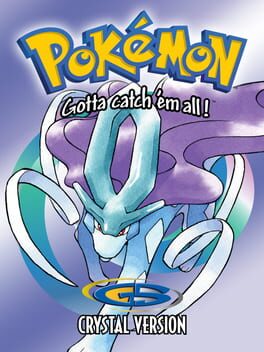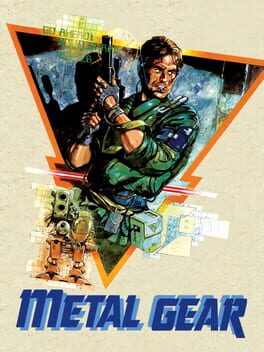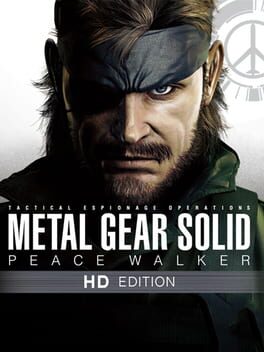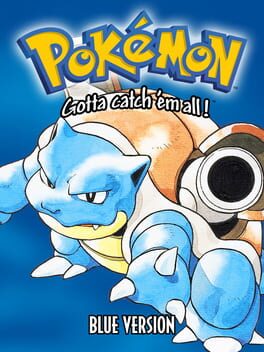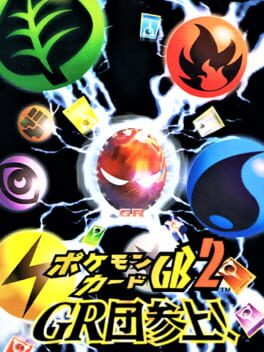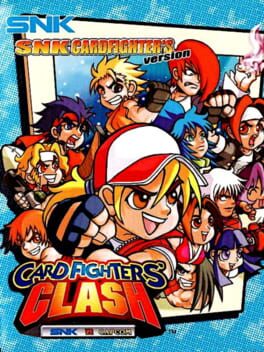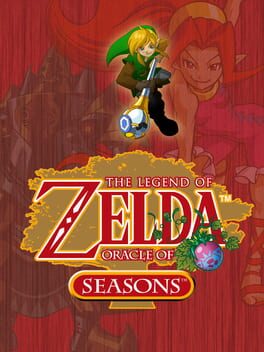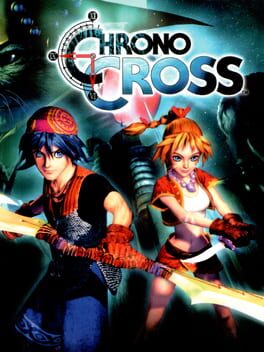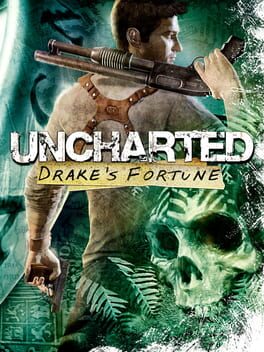inkear
I don't think Pokémon is for me, and that kinda bums me out.
To be fair, I may have set myself up for failure here a bit. I started Crystal pretty much immediately after finishing Blue for the first time in my life, and while playing two Pokémon games back-to-back may not sound strenuous if you’re a seasoned Pokéveteran, it was waaaaay too much for me. I burned out hard relatively early on, and only managed to finish the game out of a sense of spiteful obligation.
In a misguided effort to keep things fresh (and to ensure that I wasn’t falling into “genwunner” stereotypes) I resolved only to use “new” Pokémon. In other words, ones that hadn’t existed at the time of Red and Blue’s releases and were, to me at least, brand new. This was overall a great decision, as it introduced me to some new favorite creature designs (quagsire and shuckle were the two standouts. They each deserve spots in the Silly Little Guy Hall of Fame), but it also meant that my options for certain elemental types were severely limited, making some encounters more tedious than they probably needed to be.
With all of that said, and even in the exhausted, grumpy stupor in which I trudged through most of this game, I can’t help but marvel at the sheer scale and scope of it. Crystal is huge, and is full of staggeringly ambitious systems. Sure, the day/night cycle barely amounts to more than a subtle palette-shift of background assets, but there is something downright magical about having the clock in the game world match that of the real world. Exploring Kanto captures the uncanny atmosphere of returning to your hometown after a long time away, and coming to terms with the ways that it both is and isn’t the place you once knew. And I would be remiss not to mention the animated Pokémon sprites, which are gorgeous and convey an incredible amount of life and personality in an economical number of animation frames.
Pokémon Crystal is an incredible experience, and one that I wish I could love. Because it is so crammed full of things to do, you are almost forced to discover how you really feel about the Pokémon formula as a whole, and unfortunately for me, I discovered that I don’t really have much of a taste for it. But if you do, then rejoice, because what you have before you is nothing less than a feast.
To be fair, I may have set myself up for failure here a bit. I started Crystal pretty much immediately after finishing Blue for the first time in my life, and while playing two Pokémon games back-to-back may not sound strenuous if you’re a seasoned Pokéveteran, it was waaaaay too much for me. I burned out hard relatively early on, and only managed to finish the game out of a sense of spiteful obligation.
In a misguided effort to keep things fresh (and to ensure that I wasn’t falling into “genwunner” stereotypes) I resolved only to use “new” Pokémon. In other words, ones that hadn’t existed at the time of Red and Blue’s releases and were, to me at least, brand new. This was overall a great decision, as it introduced me to some new favorite creature designs (quagsire and shuckle were the two standouts. They each deserve spots in the Silly Little Guy Hall of Fame), but it also meant that my options for certain elemental types were severely limited, making some encounters more tedious than they probably needed to be.
With all of that said, and even in the exhausted, grumpy stupor in which I trudged through most of this game, I can’t help but marvel at the sheer scale and scope of it. Crystal is huge, and is full of staggeringly ambitious systems. Sure, the day/night cycle barely amounts to more than a subtle palette-shift of background assets, but there is something downright magical about having the clock in the game world match that of the real world. Exploring Kanto captures the uncanny atmosphere of returning to your hometown after a long time away, and coming to terms with the ways that it both is and isn’t the place you once knew. And I would be remiss not to mention the animated Pokémon sprites, which are gorgeous and convey an incredible amount of life and personality in an economical number of animation frames.
Pokémon Crystal is an incredible experience, and one that I wish I could love. Because it is so crammed full of things to do, you are almost forced to discover how you really feel about the Pokémon formula as a whole, and unfortunately for me, I discovered that I don’t really have much of a taste for it. But if you do, then rejoice, because what you have before you is nothing less than a feast.
1987
I started playing Metal Gear with Solid on the PS1, and worked my way through the franchise from there, roughly in release order. This means that, until now, I had completely missed the original work that kicked the franchise off! And let me tell you, after playing through dozens upon dozens of Tactical Espionage Operations in Peace Walker and The Phantom Pain, it felt so good to play through a tightly focused, narrowly scoped game!
Metal Gear is confident, atmospheric, and stylish. Though it appears on the surface to be a very punitive game where the slightest mistake can result in your carefully-laid espionage plans going up in smoke, it is actually quite forgiving. The exact mechanics of enemies noticing Snake versus ignoring him are somewhat imprecise, but more often that not this tips the scales in the player's favor rather than punishing them. There are numerous tricky sequences, but the game world is compact enough that the player is never sent back too far away from their objective. And when Metal Gear does get unfair, it is deployed deliberately, with tongue firmly in cheek, in order to play with player expectations or to get them to second-guess themselves.
Sometimes when recommending older games to folks who only engage with the contemporary gaming landscape, I find myself using phrases like "for it's time", or "once you get used to it." But honestly, I don't even need to qualify my recommendation here. Metal Gear plays great! It's well worth your time.
Metal Gear is confident, atmospheric, and stylish. Though it appears on the surface to be a very punitive game where the slightest mistake can result in your carefully-laid espionage plans going up in smoke, it is actually quite forgiving. The exact mechanics of enemies noticing Snake versus ignoring him are somewhat imprecise, but more often that not this tips the scales in the player's favor rather than punishing them. There are numerous tricky sequences, but the game world is compact enough that the player is never sent back too far away from their objective. And when Metal Gear does get unfair, it is deployed deliberately, with tongue firmly in cheek, in order to play with player expectations or to get them to second-guess themselves.
Sometimes when recommending older games to folks who only engage with the contemporary gaming landscape, I find myself using phrases like "for it's time", or "once you get used to it." But honestly, I don't even need to qualify my recommendation here. Metal Gear plays great! It's well worth your time.
The Metal Gear games have been many things to me: ingenious, frustrating, poignant, juvenile, thought-provoking, hilarious, heartbreaking. But tedious? Never! …Until Peace Walker, that is.
Peace Walker is a fascinating exploration of the Metal Gear formula. It eschews the cinematic model of story-driven action present in every previous game, opting instead for a heavily-stratified short-format mission structure. Where in past games, you move naturalistically from objective to objective, learning new information, acquiring new items, and revealing new story beats along the way, in Peace Walker, capital G Gameplay and Capital S Story are mostly cordoned off from one another, with much of the dialogue being completely optional and accessed from a discreet menu. One the one hand, this shift in design philosophy makes complete sense. Peace Walker was originally developed as a PSP game, and I totally get not wanting players to get stuck in the middle of a lengthy cutscene when they need to get off a crowded bus. I’ve been that player. I’ve missed my stop because I was trying to find a save point. Shit sucks.
But. Because of this shift in design philosophy where gameplay and story feel so separate, what we’re left with feels less like one cohesive play experience, and more like a series of tiring scavenger hunt checklists, with the option to listen to the latest episode of a mostly-unrelated radio drama every so often. Which is a shame, because Peace Walker’s story is really fascinating! Though at times in danger of retreading old ground, it always finds new angles with which to examine its cast and themes. Metal Gear games have always found unique ways to blur the line between storytelling and gameplay, and having them feel so distant here makes both feel weaker than they probably actually are.
I wish I liked Peace Walker more than I do. It’s an intricate machine with a million little independently-moving pieces; I didn’t even mention the base-building meta-game that ties all your missions together, for example. If you really gel with the particular repetition that it offers, you could sink a lot of hours into Peace Walker and be happy. But ultimately, I come to Metal Gear for a Good Time, not for a Long Time, and Peace Walker seems more committed to providing the latter.
Peace Walker is a fascinating exploration of the Metal Gear formula. It eschews the cinematic model of story-driven action present in every previous game, opting instead for a heavily-stratified short-format mission structure. Where in past games, you move naturalistically from objective to objective, learning new information, acquiring new items, and revealing new story beats along the way, in Peace Walker, capital G Gameplay and Capital S Story are mostly cordoned off from one another, with much of the dialogue being completely optional and accessed from a discreet menu. One the one hand, this shift in design philosophy makes complete sense. Peace Walker was originally developed as a PSP game, and I totally get not wanting players to get stuck in the middle of a lengthy cutscene when they need to get off a crowded bus. I’ve been that player. I’ve missed my stop because I was trying to find a save point. Shit sucks.
But. Because of this shift in design philosophy where gameplay and story feel so separate, what we’re left with feels less like one cohesive play experience, and more like a series of tiring scavenger hunt checklists, with the option to listen to the latest episode of a mostly-unrelated radio drama every so often. Which is a shame, because Peace Walker’s story is really fascinating! Though at times in danger of retreading old ground, it always finds new angles with which to examine its cast and themes. Metal Gear games have always found unique ways to blur the line between storytelling and gameplay, and having them feel so distant here makes both feel weaker than they probably actually are.
I wish I liked Peace Walker more than I do. It’s an intricate machine with a million little independently-moving pieces; I didn’t even mention the base-building meta-game that ties all your missions together, for example. If you really gel with the particular repetition that it offers, you could sink a lot of hours into Peace Walker and be happy. But ultimately, I come to Metal Gear for a Good Time, not for a Long Time, and Peace Walker seems more committed to providing the latter.
2009
Full disclosure: I started playing this game in 2018 after hearing about the imminent server shutdown and wanting to experience what the game had to offer before losing access to online play. I got all the way to the final boss, couldn't beat it, then set it down until early 2024. Better late than never, right?
Anyway, this game is great! We live in an era where people 'get' the Souls games a lot more intuitively than they once did, so I feel less compelled to defend some of the game's more frictive elements than I might have if I'd gotten into this game in 2009. Instead I'll just say that, both artistically and mechanically, Demon's Souls is beautiful. The sparse soundscapes of each level contribute to this visceral tone of sorrow and hope in a doomed world, and each level unfolds and develops in fascinating ways as you work your way through.
The Souls games are often characterized as experiences about punitive punishment and nihilistic cruelty. While I can certainly understand that reading, I would argue that Demon's Souls is fundamentally about the enduring power of hope and kindness. It is a game about Caring in an Uncaring world, and I think that's more important now than ever.
Anyway, this game is great! We live in an era where people 'get' the Souls games a lot more intuitively than they once did, so I feel less compelled to defend some of the game's more frictive elements than I might have if I'd gotten into this game in 2009. Instead I'll just say that, both artistically and mechanically, Demon's Souls is beautiful. The sparse soundscapes of each level contribute to this visceral tone of sorrow and hope in a doomed world, and each level unfolds and develops in fascinating ways as you work your way through.
The Souls games are often characterized as experiences about punitive punishment and nihilistic cruelty. While I can certainly understand that reading, I would argue that Demon's Souls is fundamentally about the enduring power of hope and kindness. It is a game about Caring in an Uncaring world, and I think that's more important now than ever.
Metal Gear Solid 3 is a land of contrasts.
It is by far the most interesting the franchise has been from a mechanical perspective, and also the least interested that I have been in the franchise's mechanics.
It is overtly, textually gay to an extent that the series has never before dared, and yet it is also frustratingly heteronormative in a way that the previous games never felt.
It's also an origin story, and origin stories are tricky. All too often, an origin story can get so wrapped up in foreshadowing soon-to-be important narrative events that it fails to stand as a story on its own. Metal Gear's writing has always been highly self-referential, so I think to a certain extent this inward-facing attitude is simply par for the course. At the same time, though, Snake Eater sometimes seems preoccupied with its own franchise history, and less interested in connecting to the outside world. All that said, Snake Eater does have some new and profound (though characteristically overwrought) things to say about war, the State, family, trauma, and inevitability.
Snake Eater is the Zeta Gundam of Metal Gear, and I mean that both as a compliment and an insult.
It is by far the most interesting the franchise has been from a mechanical perspective, and also the least interested that I have been in the franchise's mechanics.
It is overtly, textually gay to an extent that the series has never before dared, and yet it is also frustratingly heteronormative in a way that the previous games never felt.
It's also an origin story, and origin stories are tricky. All too often, an origin story can get so wrapped up in foreshadowing soon-to-be important narrative events that it fails to stand as a story on its own. Metal Gear's writing has always been highly self-referential, so I think to a certain extent this inward-facing attitude is simply par for the course. At the same time, though, Snake Eater sometimes seems preoccupied with its own franchise history, and less interested in connecting to the outside world. All that said, Snake Eater does have some new and profound (though characteristically overwrought) things to say about war, the State, family, trauma, and inevitability.
Snake Eater is the Zeta Gundam of Metal Gear, and I mean that both as a compliment and an insult.
1996
So to clarify up front, I’m not a Pokemon person. This is the only Pokemon game I’ve ever played, and it took me nearly 30 years to finally finish it. As I understand, there are numerous quality-of-life improvements that have been made to the Pokemon formula over the years, and many fans of the franchise find these early ones pretty hard to return to nowadays. Luckily for me, I don’t have any frame of reference for those improvements, so things like inventory and Pokemon box management didn’t bother me the way they might bother others.
Likewise, though some people (who are wrong and foolish) find the spritework goofy or amateurish, I (correct, smart, and beautiful) love the sprites dearly. Strange, bold, and evocative, the monster designs make me very happy.
To a certain extent, that carries over into how I feel about the game as a whole. People can be quick to look at rough edges as problems that need fixing, but I would argue the opposite. Pokemon Blue is a game that does quite a lot with only a little, and I think it deserves to be engaged with honestly, and not written off for its idiosyncrasies.
Likewise, though some people (who are wrong and foolish) find the spritework goofy or amateurish, I (correct, smart, and beautiful) love the sprites dearly. Strange, bold, and evocative, the monster designs make me very happy.
To a certain extent, that carries over into how I feel about the game as a whole. People can be quick to look at rough edges as problems that need fixing, but I would argue the opposite. Pokemon Blue is a game that does quite a lot with only a little, and I think it deserves to be engaged with honestly, and not written off for its idiosyncrasies.
Chrono Cross is the sequel to Chrono Trigger, a universally-beloved, critically-acclaimed masterpiece that shines just as brightly today as the day it was released. By contrast, Chrono Cross is an awkward, meandering, often incomprehensible mess that can only make sense when viewed from the angle of the exact cultural and chronological moment of its development and release. It is far too interested in interrogating the why of its predecessor, deconstructing its tropes and denying its truisms, to ever concern itself with anything as banal as being 'the previous game, but with a 2 at the end.' It stands on its own, almost rebelliously, as a kind of 'anti-sequel'.
I bring all of this up because Metal Gear Solid 2 is the same type of sequel, and the feelings I have for it are likewise complex and often contradictory. Metal Gear Solid 2 is a breathtaking experience. Even in 2023, when countless other video games have done its 'thing', MGS2 managed to astonish me, captivate me, bring me to tears. I would never say that it is 'better' than its predecessor, but to judge it by that metric would be to do it a disservice. It is so much more than that. Metal Gear Solid 2 transcends sequels, it laughs in the face of sequeldom! It is an overbaked, self-absorbed, gordian knot of a game, and I won't be able to sleep tonight because I can't stop thinking about it.
(also the little extra pat on the arm that Snake gives Otacon after their secret handshake made me scream and kick my feet like a little girl, 5 stars for that moment alone)
I bring all of this up because Metal Gear Solid 2 is the same type of sequel, and the feelings I have for it are likewise complex and often contradictory. Metal Gear Solid 2 is a breathtaking experience. Even in 2023, when countless other video games have done its 'thing', MGS2 managed to astonish me, captivate me, bring me to tears. I would never say that it is 'better' than its predecessor, but to judge it by that metric would be to do it a disservice. It is so much more than that. Metal Gear Solid 2 transcends sequels, it laughs in the face of sequeldom! It is an overbaked, self-absorbed, gordian knot of a game, and I won't be able to sleep tonight because I can't stop thinking about it.
(also the little extra pat on the arm that Snake gives Otacon after their secret handshake made me scream and kick my feet like a little girl, 5 stars for that moment alone)
1998
A truly, astonishingly remarkable experience from beginning to end, but how did straight boys play this game in the nineteen goddamn nineties and not melt like the Wicked Witch of the West?! Perhaps the single most homoerotic work of fiction that I have ever consumed, Metal Gear Solid is the story of queer men who can only express affection and desire for one another through ostentatious displays of sensualized violence. This is my first Hideo Kojima game but it certainly won't be my last.
Another jaunty little trading card game-meets mini RPG, which has become something of a joy for me lately. This one is so much broader, deeper, and more complex than the original that I would almost say that it obviates the need to play the earlier entry. I wouldn't quite go that far, however. Pokemon Card GB2 operates in the 'same-but-more' school of sequeldom, and I would wager during development it was assumed that the player had already completed the original. Because of that, the tutorialization is a bit blander, and the opening act is a bit messier and less straightforward than the original. Still, the deckbuilding restrictions and ruleset tweaks introduced in the game's second half, coupled with the larger card pool, make this game a ton of fun both for those who compleded the original and want more and for folks who are simply curious about this specific era of a now-venerable tcg.
Maybe I'm a weirdo, but I love when virtual card games have a little mini-rpg wrapper around them. I dunno, walking around an rpg map and talking to NPCs in between matches just makes me happy! Much like the Pokemon TCG gameboy game, Card Fighters is charming and mostly intuitive, with gorgeous pixel art. Some of the effect descriptions can be a bit confusing, but my main gripe is that the game is fairly stingy with card drops. You should expect to play against the same stable of opponents numerous times to earn some of the higher rarity cards. That wouldn't be so bad (I enjoy grinding every now and then), but because the drip of new cards was so slow, I never felt like my deck ever evolved past 'disorganized pile of the best cards I own'. There are legitimate card synergies present in the game, so it would have been neat to build into a specific archetype or strategy. Still, the game is full of life and joy, and captures a lot of what I enjoy about TCGs.
2018
Delightful. A lot of indie platformers lean into the ultra-hard tough-as-nails gameplay mode, and what I love about Celeste is how, while it is very challenging, it seems to deliberately refute the 'git gud' attitude that a lot of those games tend to engender. With both its gameplay and its story, Celeste is constantly reminding you that you can take as many tries as you want, you don't have to get it right on your first go, and you're never going to lose too much progress if you mess up. At times the dialogue can be schmaltzy, but that too is part of the Point of it. Celeste is a game about forgiving yourself, and creates an experience where the player is encouraged to do so in their own gameplay as well.
1996
When I hear people criticize the camera in this game, I immediately turn into a boomer. "Kids these days don't appreciate what they have!" "When I was your age I had four C buttons and I liked it!" etc. I can't help it; I experienced this game at a very formative time in my life and for that reason I can't assess it completely objectively.
But look. Look.
The camera does not operate the way modern 3rd person game cameras operate. Okay? If you treat it like that, you will be frustrated. You will have a bad time. So don't. Let the camera move on its own for the most part. Accept that the angle the camera is gravitating toward may not be the angle you would have chosen for this situation. Don't fight the camera, let it take the lead. I promise you'll enjoy yourself more.
But look. Look.
The camera does not operate the way modern 3rd person game cameras operate. Okay? If you treat it like that, you will be frustrated. You will have a bad time. So don't. Let the camera move on its own for the most part. Accept that the angle the camera is gravitating toward may not be the angle you would have chosen for this situation. Don't fight the camera, let it take the lead. I promise you'll enjoy yourself more.
At some point in our collective understanding of the Zelda franchise, these Gameboy Color games were determined to be 'lesser entries', mere diversions along the path of the Zelda canon. And man I just really dig them a lot! Oracle of Seasons is a game bursting with things to see and eager for you to see them. The cast of characters is charming, the color palette is gorgeous, especially when witnessing the changing of the seasons, and the exploratory gating, though sometimes a bit arbitrary, usually feels naturalistic and logical.
1999
I don't know how to say this without sounding completely bonkers, but: Chrono Cross is not as good and Chrono Trigger and I might love it even more. It is my favorite kind of sequel, bold enough to poke and prod at the original and dig in, unafraid of ruffling feathers. I hope that over the course of my life I can bring as much beauty into the world as was brought in by Chrono Cross.
Very rarely will I say that I hate a game. There are plenty of games that aren't for me, but 'hate' is an emotion that I generally find unproductive in art criticism.
But man I hate this game. I could talk about how the combat feels gummy and graceless, or how thematically the idea of exploring uncharted territory in search of hidden treasure is totally undercut by the highly scripted, linear nature of the game, but mostly I just want to say that it sucks, and Nathan sucks, and if I never play another Uncharted game it'll be too soon.
But man I hate this game. I could talk about how the combat feels gummy and graceless, or how thematically the idea of exploring uncharted territory in search of hidden treasure is totally undercut by the highly scripted, linear nature of the game, but mostly I just want to say that it sucks, and Nathan sucks, and if I never play another Uncharted game it'll be too soon.
